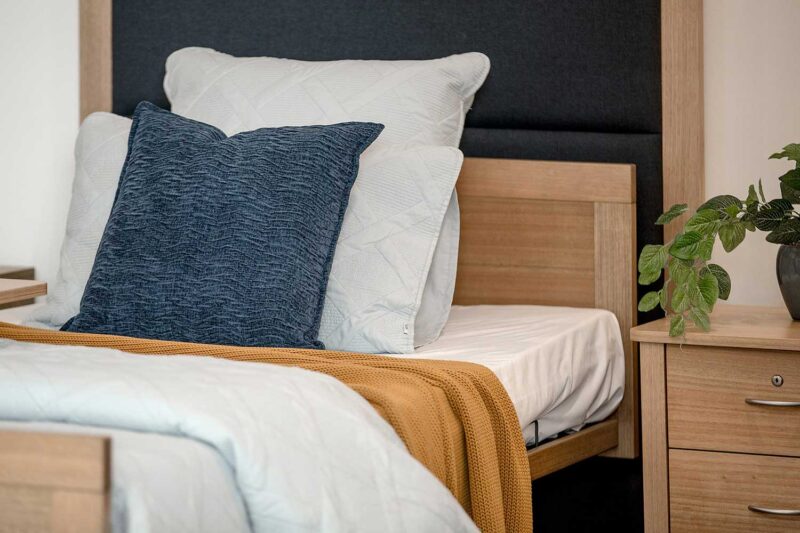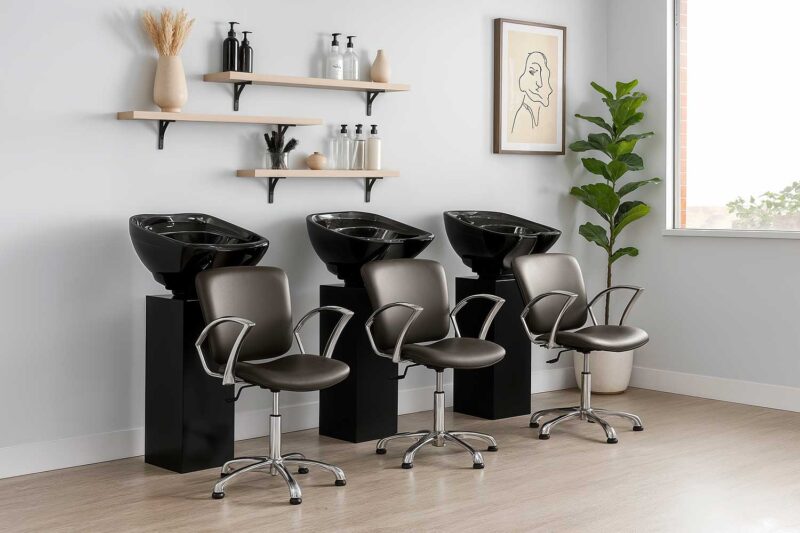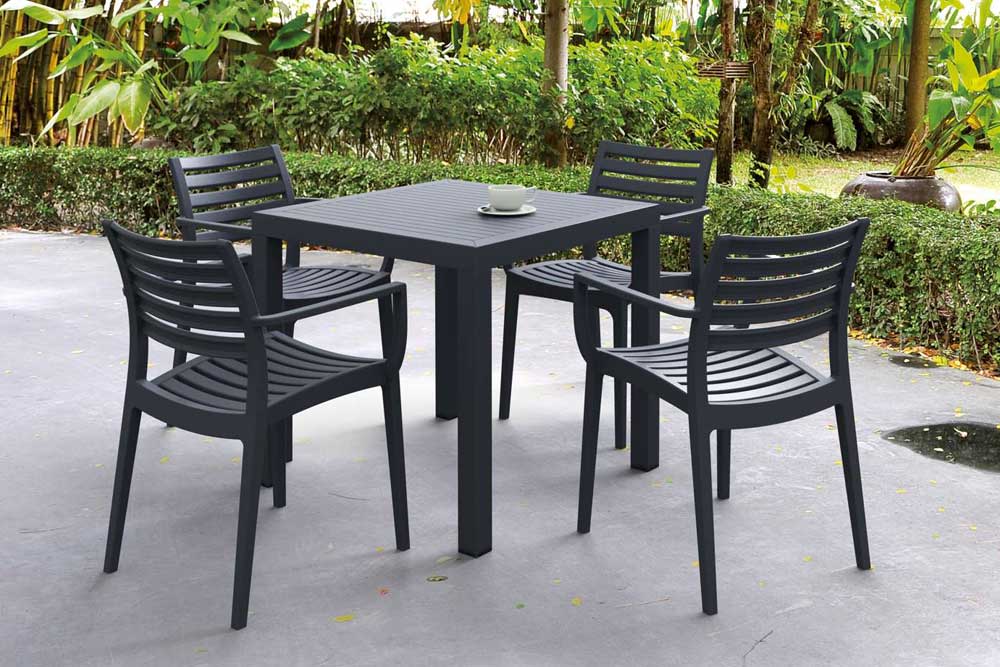6 Ways Aged Care Facilities Can Improve Communication with Residents

How do you strengthen relationships between aged care staff, residents and their families?
Improving communication with aged care residents and their relatives is essential for providing the highest quality care and lifestyle to your residents. It is vital that aged care providers have effective communication strategies in place to ensure that residents and their relatives feel informed and involved in decisions about their care. Good communication can help to build trust between aged care staff and residents, and can also help to reduce the risk of misunderstanding or conflict.
There are many ways to achieve this, but here are six of the most effective methods:
Form a Residents’ Council
A residents’ council is an excellent way to get feedback from residents about the level of care and service they are receiving. It also provides an opportunity for relatives to raise any concerns they may have.
Forming an aged care residents’ council can be hugely beneficial for both residents and staff. Residents feel empowered and valued, while staff gain insights into the needs and concerns of residents. In addition, a well-functioning council can help to resolve conflict and build a sense of community within the facility.
If you’re convinced that forming a residents’ council is right for your facility, the next step is putting together a plan for how to do it. Encourage interested residents to form a steering committee. This committee will be responsible for getting the ball rolling and should consist of passionate and committed individuals who are willing to put in the time and effort required to get the council up and running. Work collaboratively with the steering committee to ensure that the process runs smoothly and that everyone is on the same page from start to finish. Hold elections for council positions. Once you have a list of interested individuals, it’s time to hold elections so that everyone has a say in who leads the council. Then, get started on tackling pressing issues.
Encourage Feedback
Feedback is essential to identify areas where improvements can be made. You should make it easy for residents and relatives to provide feedback, and you should thank them for doing so.
Make sure there are multiple avenues through which they can provide input, such as a comment box in the lobby, a suggestion box in each wing, or regular surveys. And make sure to publicize these channels so residents know where to go to have their voices heard.
When you do receive feedback, take it seriously and investigate ways to improve based on what you’ve heard. Let residents know that their input is valuable and that you’re taking steps to implement changes based on their suggestions. This will show them that you’re committed to providing the best possible experience for everyone in your facility.
Make Use of Technology
Technology can be used to great effect in aged care facilities. For example, you could set up a WhatsApp group for relatives so they can easily communicate with each other, or you could use a video call service such as Skype or FaceTime to keep residents in touch with their loved ones.
One of the simplest ways to keep in touch with residents and their families is via email. Most people already have an email address, and checking emails is a relatively easy process for even those who are not very tech-savvy. Emails can be sent quickly and easily, and they can be read at the recipient’s convenience. Sending regular updates via email is a great way to keep families informed about their loved ones while also reducing your own workload.
Hold Regular Meetings
Regular meetings give everyone the opportunity to hear about any changes or developments that may be taking place within the aged care facility. They also provide an opportunity for open discussion and debate.
You may also consider holding regular family meetings. Family meetings offer a structured environment in which everyone can share their thoughts and feelings openly. This type of communication is so important in aged care because it helps to prevent misunderstandings and conflict. When there is open communication between staff, residents, and families, everyone is on the same page and can work together towards common goals.
Encourage Social Activities
Social activities are a great way to bring residents and relatives together and encourage communication in a fun and inviting atmosphere. You could hold regular coffee mornings, barbecue days, or even outings to local attractions.
Another great idea is to arrange for regular guest speakers. This could be anyone from a local wildlife expert who brings exotic animals for residents to pet to a WWII veteran who shares stories about his time in the service. Having a variety of guest speakers will keep residents engaged and provide them with opportunities to learn new things and ask questions.
Keep Lines of Communication Open
Finally, it is important that you always keep lines of communication open. This means being available to answer questions, address concerns, and provide information when needed.
Make it known that you’re always open to hearing feedback, good or bad. Encourage residents to approach you directly with any concerns or suggestions they may have. And when they do, take the time to listen attentively and thank them for their input. This will help build trust and rapport between you and the residents in your care
Improving communication with aged care residents and their relatives is essential for providing the highest quality care and lifestyle to your residents. There are many ways to achieve this, but the six methods outlined above are some of the most effective. By implementing these measures, you will soon see an improvement in the care and lifestyles of those who matter most – the residents and their families.
FAQs about How Aged Care Facilities Can Improve Communication with Residents
How can aged care facilities enhance communication with residents?
Aged care facilities can improve communication by implementing various strategies such as regular resident meetings, utilizing technology for virtual communication, and ensuring staff undergo communication training.
What role does technology play in improving communication with residents in aged care facilities?
Technology can play a significant role in improving communication by facilitating virtual interactions through video calls, providing residents with access to tablets for entertainment and communication, and implementing communication apps that keep residents and their families informed about facility updates.
How can aged care facilities encourage resident participation in communication initiatives?
To encourage resident participation, facilities can organize engaging activities, create resident councils or committees, and seek feedback through surveys. This involvement not only enhances communication but also fosters a sense of community and empowerment among residents.
Are there specific training programs for aged care facility staff to enhance communication skills?
Yes, staff training programs focused on communication skills are beneficial. These programs can include modules on active listening, empathy, effective communication with residents with diverse needs, and handling difficult conversations.
What measures can be taken to address communication barriers, especially for residents with hearing or vision impairments?
Aged care facilities can address communication barriers by providing assistive technologies, using visual aids, ensuring adequate lighting, and employing staff trained in communicating with residents with sensory impairments. Regular assessments of residents’ communication needs can also be beneficial.
How can facilities keep families informed about their loved ones in aged care?
Facilities can keep families informed through regular updates via email, newsletters, or a dedicated online portal. Additionally, scheduling regular family meetings, whether in person or virtually, can provide an opportunity for open communication and address any concerns.
What are some effective communication strategies during times of crisis or emergencies?
During crises or emergencies, facilities can establish clear communication channels, have emergency communication plans in place, and regularly update residents and their families on the situation. Utilizing multiple communication methods, such as text messages, phone calls, and notices, can help ensure information reaches everyone promptly.
How can facilities tailor communication to meet the diverse cultural and linguistic needs of residents?
To address cultural and linguistic diversity, aged care facilities can hire staff with multilingual capabilities, provide translated materials, and celebrate cultural events. Creating a culturally sensitive environment fosters better communication and understanding among residents.
What role do resident feedback mechanisms play in improving communication?
Resident feedback mechanisms, such as suggestion boxes or regular feedback sessions, provide valuable insights. Facilities can use this feedback to identify areas for improvement, address concerns promptly, and adapt communication strategies to better meet the needs of residents.
How can facilities create a supportive and communicative environment for residents experiencing cognitive decline, such as dementia?
For residents with cognitive decline, facilities can use visual cues, maintain consistent routines, and train staff in dementia-friendly communication techniques. Creating a calm and familiar environment can help residents feel more secure and enhance communication.
Armchairs designed specifically with the needs of aged care residents in mind
More News
6 Ways Aged Care Facilities Can Improve Communication with Residents

How do you strengthen relationships between aged care staff, residents and their families?
Improving communication with aged care residents and their relatives is essential for providing the highest quality care and lifestyle to your residents. It is vital that aged care providers have effective communication strategies in place to ensure that residents and their relatives feel informed and involved in decisions about their care. Good communication can help to build trust between aged care staff and residents, and can also help to reduce the risk of misunderstanding or conflict.
There are many ways to achieve this, but here are six of the most effective methods:
Form a Residents’ Council
A residents’ council is an excellent way to get feedback from residents about the level of care and service they are receiving. It also provides an opportunity for relatives to raise any concerns they may have.
Forming an aged care residents’ council can be hugely beneficial for both residents and staff. Residents feel empowered and valued, while staff gain insights into the needs and concerns of residents. In addition, a well-functioning council can help to resolve conflict and build a sense of community within the facility.
If you’re convinced that forming a residents’ council is right for your facility, the next step is putting together a plan for how to do it. Encourage interested residents to form a steering committee. This committee will be responsible for getting the ball rolling and should consist of passionate and committed individuals who are willing to put in the time and effort required to get the council up and running. Work collaboratively with the steering committee to ensure that the process runs smoothly and that everyone is on the same page from start to finish. Hold elections for council positions. Once you have a list of interested individuals, it’s time to hold elections so that everyone has a say in who leads the council. Then, get started on tackling pressing issues.
Encourage Feedback
Feedback is essential to identify areas where improvements can be made. You should make it easy for residents and relatives to provide feedback, and you should thank them for doing so.
Make sure there are multiple avenues through which they can provide input, such as a comment box in the lobby, a suggestion box in each wing, or regular surveys. And make sure to publicize these channels so residents know where to go to have their voices heard.
When you do receive feedback, take it seriously and investigate ways to improve based on what you’ve heard. Let residents know that their input is valuable and that you’re taking steps to implement changes based on their suggestions. This will show them that you’re committed to providing the best possible experience for everyone in your facility.
Make Use of Technology
Technology can be used to great effect in aged care facilities. For example, you could set up a WhatsApp group for relatives so they can easily communicate with each other, or you could use a video call service such as Skype or FaceTime to keep residents in touch with their loved ones.
One of the simplest ways to keep in touch with residents and their families is via email. Most people already have an email address, and checking emails is a relatively easy process for even those who are not very tech-savvy. Emails can be sent quickly and easily, and they can be read at the recipient’s convenience. Sending regular updates via email is a great way to keep families informed about their loved ones while also reducing your own workload.
Hold Regular Meetings
Regular meetings give everyone the opportunity to hear about any changes or developments that may be taking place within the aged care facility. They also provide an opportunity for open discussion and debate.
You may also consider holding regular family meetings. Family meetings offer a structured environment in which everyone can share their thoughts and feelings openly. This type of communication is so important in aged care because it helps to prevent misunderstandings and conflict. When there is open communication between staff, residents, and families, everyone is on the same page and can work together towards common goals.
Encourage Social Activities
Social activities are a great way to bring residents and relatives together and encourage communication in a fun and inviting atmosphere. You could hold regular coffee mornings, barbecue days, or even outings to local attractions.
Another great idea is to arrange for regular guest speakers. This could be anyone from a local wildlife expert who brings exotic animals for residents to pet to a WWII veteran who shares stories about his time in the service. Having a variety of guest speakers will keep residents engaged and provide them with opportunities to learn new things and ask questions.
Keep Lines of Communication Open
Finally, it is important that you always keep lines of communication open. This means being available to answer questions, address concerns, and provide information when needed.
Make it known that you’re always open to hearing feedback, good or bad. Encourage residents to approach you directly with any concerns or suggestions they may have. And when they do, take the time to listen attentively and thank them for their input. This will help build trust and rapport between you and the residents in your care
Improving communication with aged care residents and their relatives is essential for providing the highest quality care and lifestyle to your residents. There are many ways to achieve this, but the six methods outlined above are some of the most effective. By implementing these measures, you will soon see an improvement in the care and lifestyles of those who matter most – the residents and their families.
FAQs about How Aged Care Facilities Can Improve Communication with Residents
How can aged care facilities enhance communication with residents?
Aged care facilities can improve communication by implementing various strategies such as regular resident meetings, utilizing technology for virtual communication, and ensuring staff undergo communication training.
What role does technology play in improving communication with residents in aged care facilities?
Technology can play a significant role in improving communication by facilitating virtual interactions through video calls, providing residents with access to tablets for entertainment and communication, and implementing communication apps that keep residents and their families informed about facility updates.
How can aged care facilities encourage resident participation in communication initiatives?
To encourage resident participation, facilities can organize engaging activities, create resident councils or committees, and seek feedback through surveys. This involvement not only enhances communication but also fosters a sense of community and empowerment among residents.
Are there specific training programs for aged care facility staff to enhance communication skills?
Yes, staff training programs focused on communication skills are beneficial. These programs can include modules on active listening, empathy, effective communication with residents with diverse needs, and handling difficult conversations.
What measures can be taken to address communication barriers, especially for residents with hearing or vision impairments?
Aged care facilities can address communication barriers by providing assistive technologies, using visual aids, ensuring adequate lighting, and employing staff trained in communicating with residents with sensory impairments. Regular assessments of residents’ communication needs can also be beneficial.
How can facilities keep families informed about their loved ones in aged care?
Facilities can keep families informed through regular updates via email, newsletters, or a dedicated online portal. Additionally, scheduling regular family meetings, whether in person or virtually, can provide an opportunity for open communication and address any concerns.
What are some effective communication strategies during times of crisis or emergencies?
During crises or emergencies, facilities can establish clear communication channels, have emergency communication plans in place, and regularly update residents and their families on the situation. Utilizing multiple communication methods, such as text messages, phone calls, and notices, can help ensure information reaches everyone promptly.
How can facilities tailor communication to meet the diverse cultural and linguistic needs of residents?
To address cultural and linguistic diversity, aged care facilities can hire staff with multilingual capabilities, provide translated materials, and celebrate cultural events. Creating a culturally sensitive environment fosters better communication and understanding among residents.
What role do resident feedback mechanisms play in improving communication?
Resident feedback mechanisms, such as suggestion boxes or regular feedback sessions, provide valuable insights. Facilities can use this feedback to identify areas for improvement, address concerns promptly, and adapt communication strategies to better meet the needs of residents.
How can facilities create a supportive and communicative environment for residents experiencing cognitive decline, such as dementia?
For residents with cognitive decline, facilities can use visual cues, maintain consistent routines, and train staff in dementia-friendly communication techniques. Creating a calm and familiar environment can help residents feel more secure and enhance communication.
Armchairs designed specifically with the needs of aged care residents in mind
Discover the FHG Look Book: Your Source of Inspiration for Quality Australian-Made Commercial Furniture
- Quality Craftsmanship: See why we’ve been a trusted partner for over 25 years.
- Local Excellence: Learn how our Brisbane team ensures the highest standards.
- Inspiration and Ideas: Find innovative furniture solutions for any environment.
Don’t miss the opportunity to transform your commercial space with FHG’s expertly crafted furniture. Download the FHG Look Book today and start your journey towards exceptional design and quality.
























